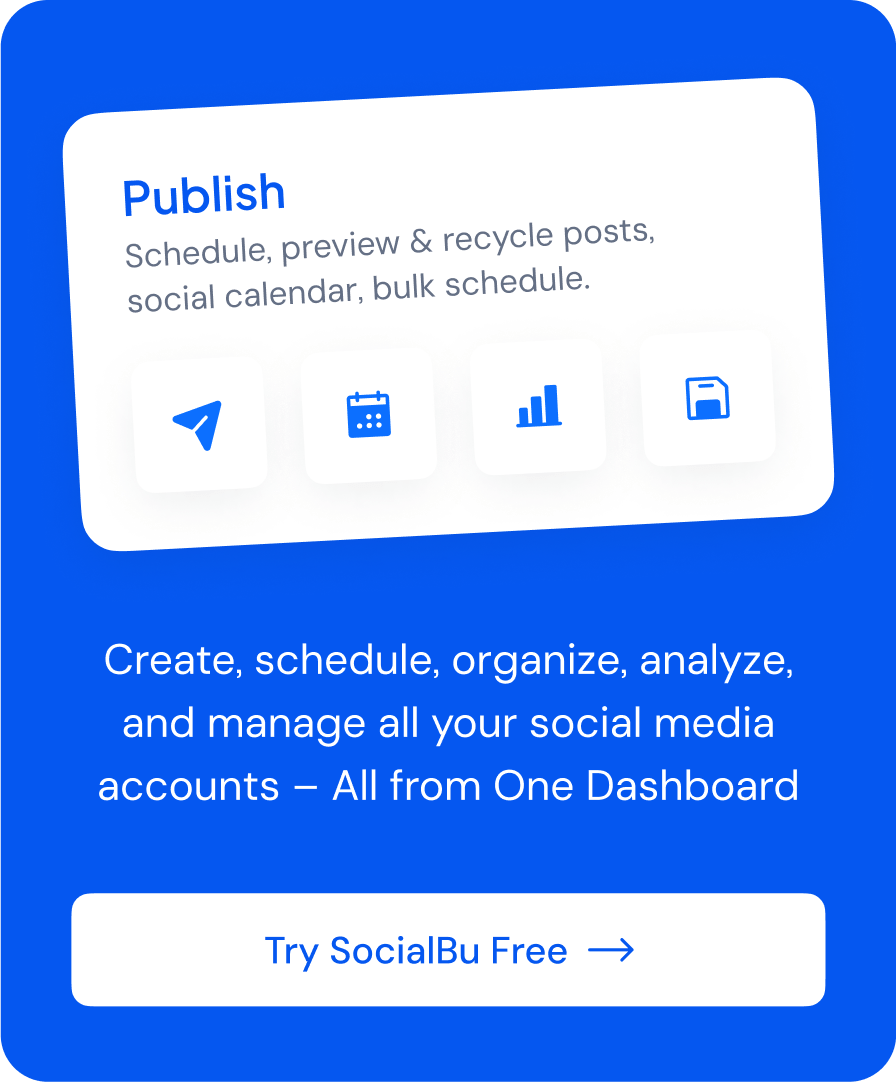The landscape for social media has undergone a significant shift. The days of merely monitoring engagement metrics and reporting on reach are long gone. As a social media analyst, you are now expected to be a storyteller, trend forecaster, and data wizard all at once.
With 2025 just around the corner, as the digital age moves towards automation, AI, and deeper data insights, user behavior is becoming more unpredictable, and algorithms are becoming smarter. This brings up the need to hone skills that will not just endure the transitions but flourish in them if you want to stay up to date-and, more importantly, stand out.
The seven future-proof skills highlighted in this blog will help social media analysts stay ahead of the curve when it comes to shaping the future of social media marketing.
Without any further ado, let’s dive in!
Who is a Social Media Analyst
Social media analysts turn data into actionable insights, helping brands optimize engagement and visibility. By analyzing audience behavior, trends, and content performance, they forecast patterns and provide improvement strategies to strengthen online presence.
Furthermore, social media analysts play a crucial role in determining a brand’s position in the online market landscape. They analyze engagement trends, audience preferences, and content effectiveness to help the brand stand out and connect with its target audience.
The fundamentals of the role of a social media analyst include:
- Expertise in using social analytics tools to assess critical metrics, a problem-solving approach to enhance social media results, and meet objectives.
- Proficiency with analytics tools to track and report key performance indicators (KPIs) and strategic problem-solving to drive social performance and meet targets.
- Leveraging analytics tools to monitor critical metrics to elevate social strategy and reach objectives.
What is the Difference Between a Social Media Analyst and a Social Media Manager?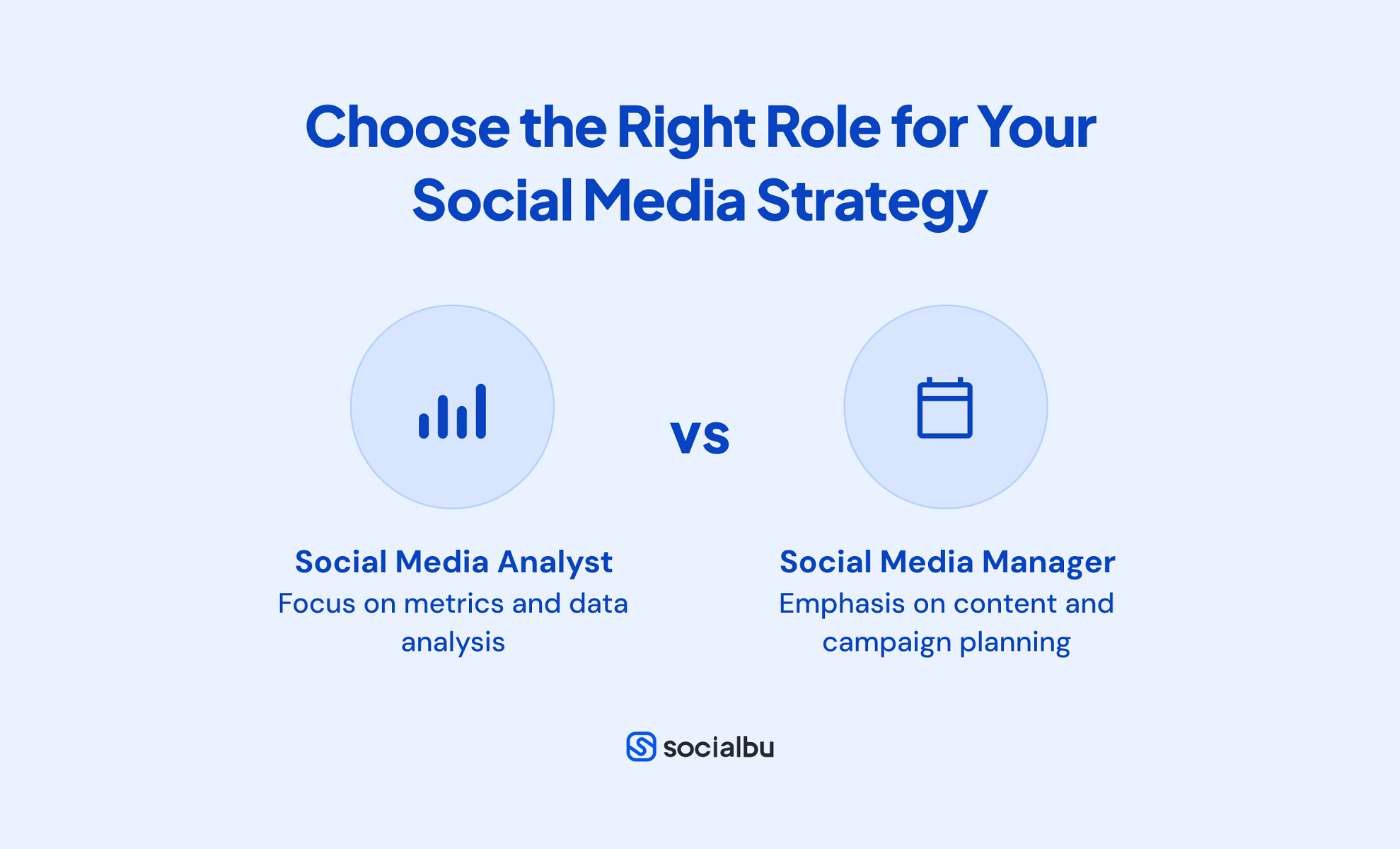
Now that you’re familiar with what a Social Media Analyst is, you might be curious about how it compares to that of a Social Media Manager. While both positions play their role in social media success, their approach toward brand growth is different.
The primary difference is a social media analyst’s key area of focus is tracking metrics and digging into social media metrics about your brand. On the other hand, a social media manager’s role is content management and planning social media campaigns.
The Role of Social Media Analysts in Brand Expansion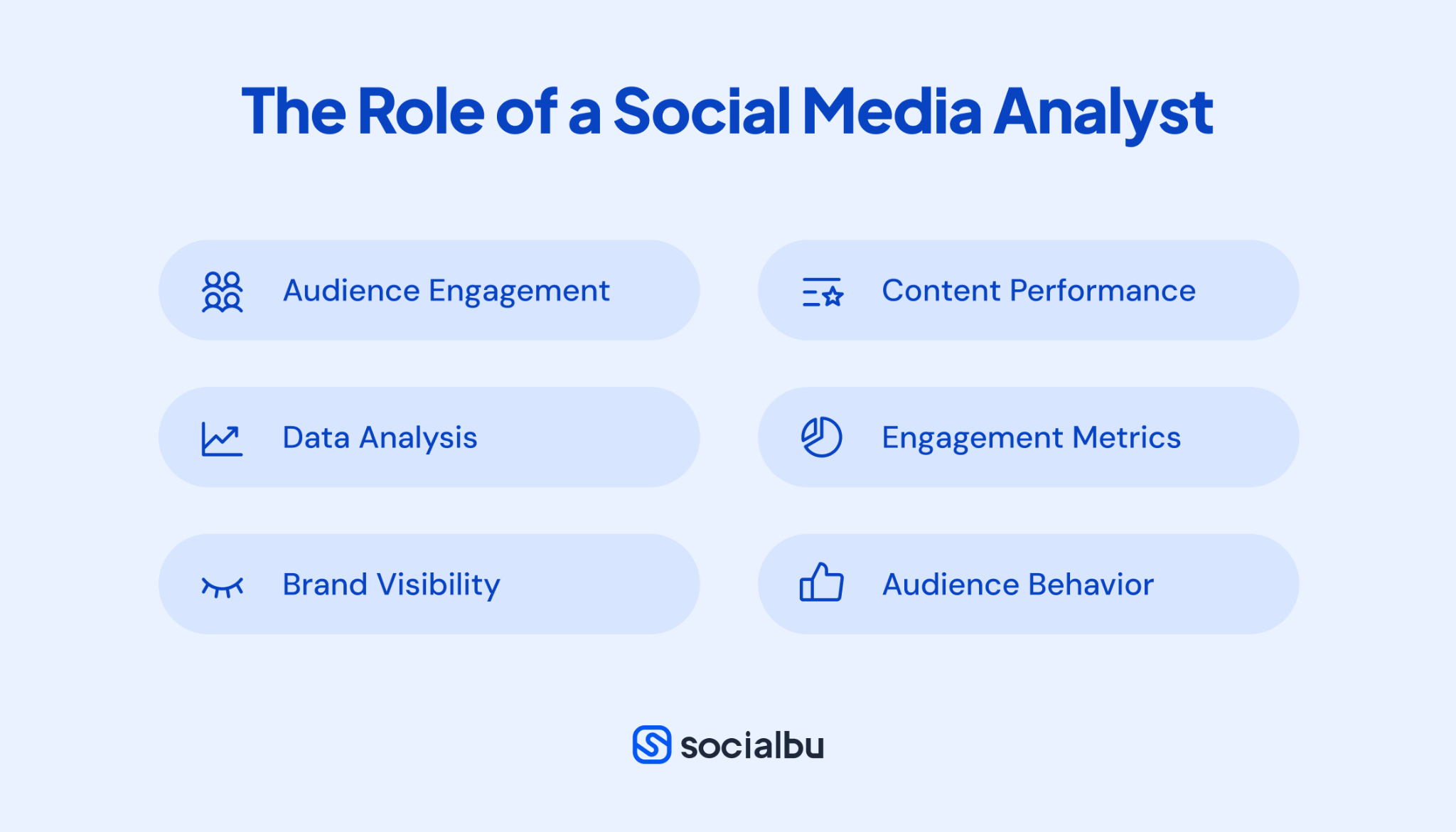
Before delving into future-proof skills for social media analysts in 2025, let’s look at some of the fundamental roles performed by social media analysts.
1. Predict Social Media Outcomes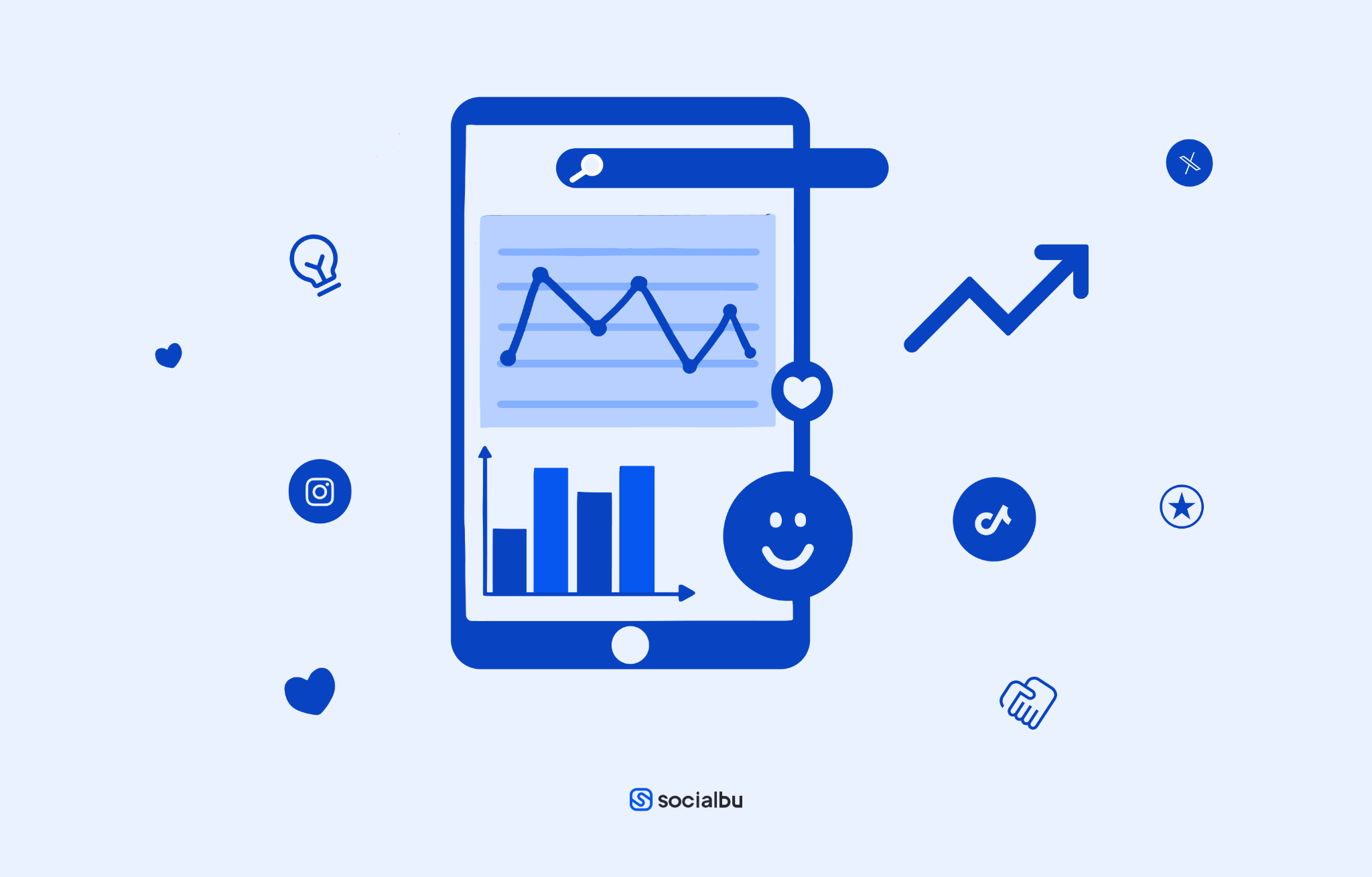
Social media marketing is all about identifying new social changes and strategizing content ahead of time. But here’s the issue: given that there are certainly many social media trends emerging on the market, how can you estimate which of them will grow in the coming months?
The solution involves analyzing prior social media activity by performing statistical analysis to predict future engagement patterns. In simple words, social media analysts must be aware of the types of content, at what time, and with which engagement tactics are likely to go viral from patterns retrieved from past data.
This strategy ensures time and money are invested in the most effective areas.
2. Identify New Social Media Trends
One of the responsibilities of a media analyst is to be aware of emerging social media trends. Social media analysts should know what’s trending on social platforms to keep their brands upfront, relevant, and trendy. 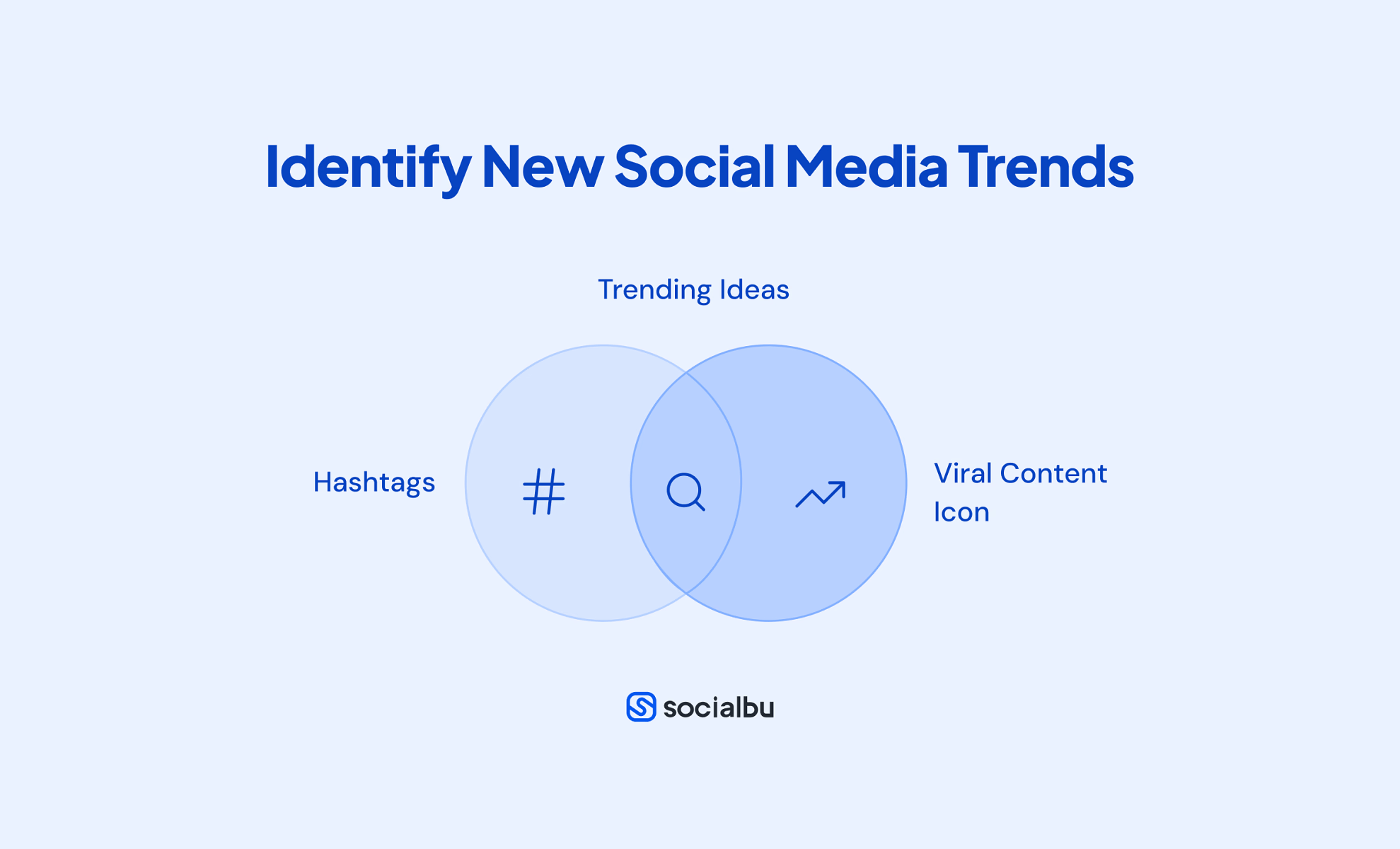
For instance, when talking about social media trends in 2025, short-form video is the most effective content format, capturing attention quickly and delivering impactful messages that resonate with today’s fast-paced audiences.
3. Research Target Audiences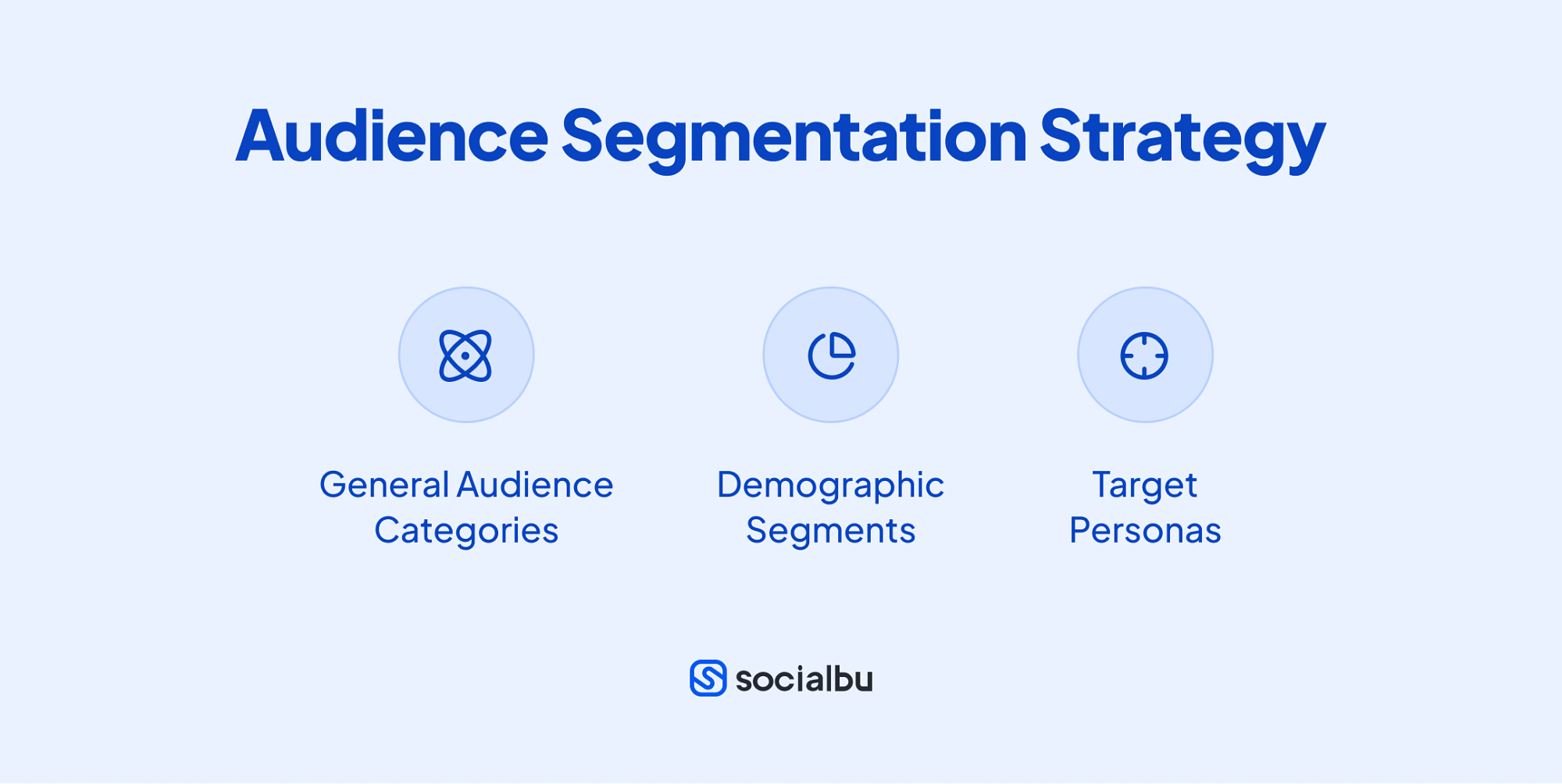
Researching target audiences is one of the key tasks of any social media analyst. Conducting an in-depth analysis of audience demographics, interests, age, and gender helps brands reach the most relevant audience segments. It ultimately increases engagement, brand loyalty, and campaign success.
When a social media manager wants to initiate a new trend, social media analysts provide data-driven insights. This helps shape content that aligns with the brand and maximizes impact.
4. Focus Beyond Their Brand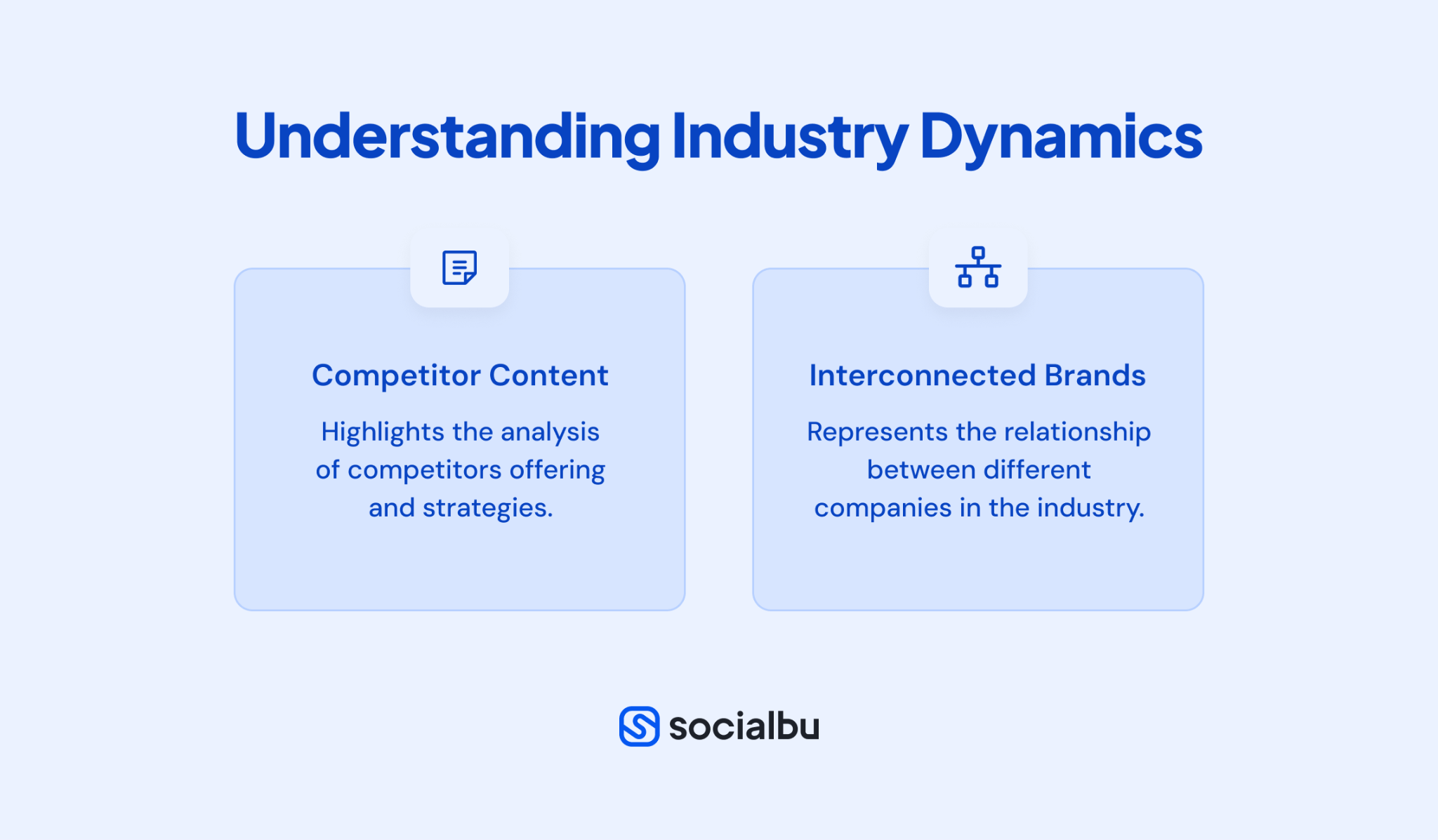
Another important role of a social media analyst is closely monitoring other competitors’ data and broader market trends, which provides insightful information beyond their brand.
In addition, analysts watch for industry trends across different social channels to see what kind of content performs best on each platform.
By using competitor reports and listening tools on platforms like SocialBu, SocialBu helps manage social media tasks faster, cutting down on manual efforts.
5. Collaborate and Communicate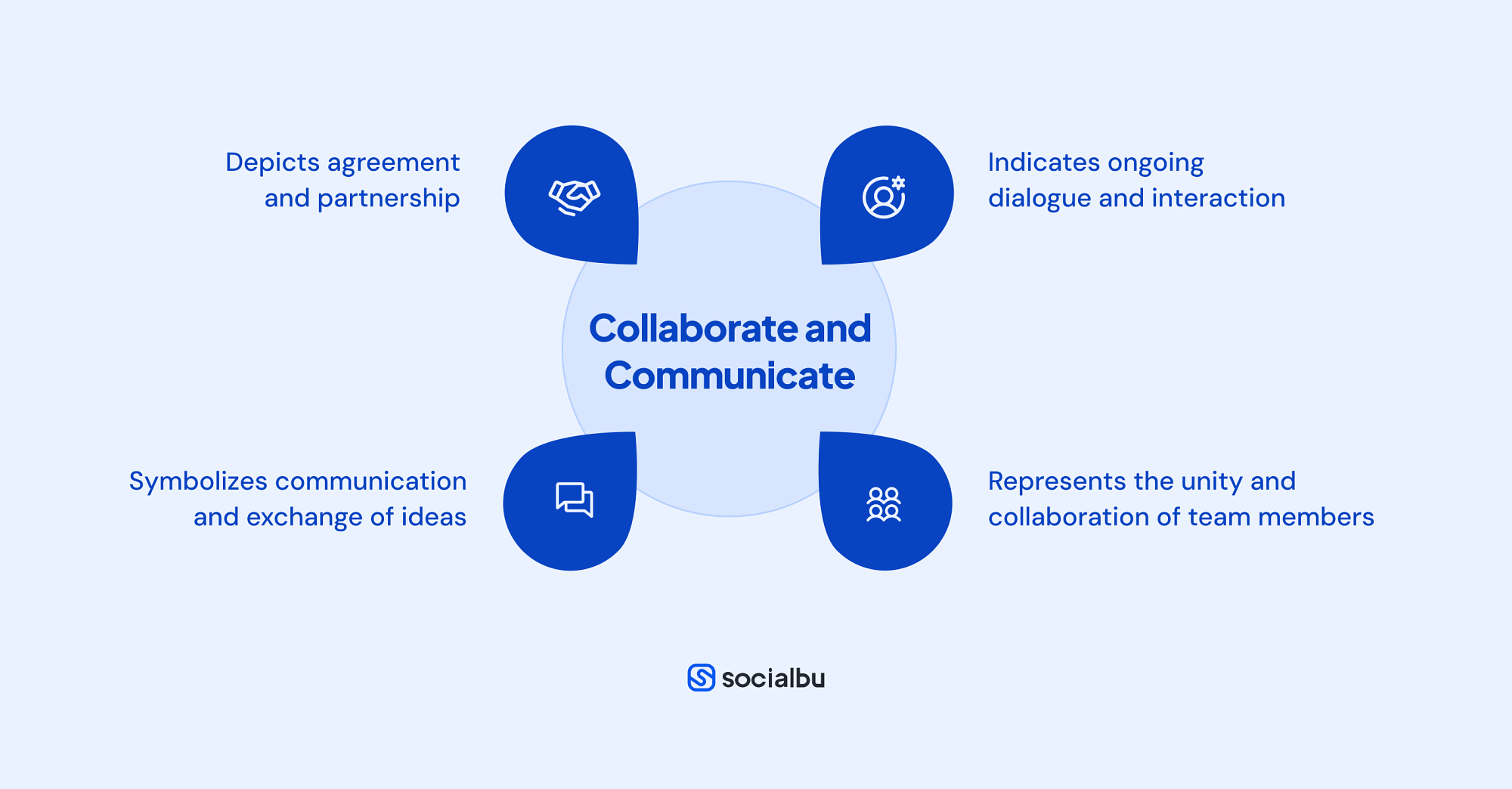
Social media analysts play an active role as communicators, bridging the gap between various teams to ensure cohesive strategies and smooth execution.
They collaborate closely with the marketing, content, and sales teams to ensure that campaigns are data-driven and not out-of-date. Coordination guarantees that more decisions are made based on evidence to foster the brand’s goals.
With tools like SocialBu, analysts can track performance metrics and audience insights while also facilitating team collaboration. SocialBu lets you manage multiple users and assign roles, making teamwork and decision-making easier.
6. Help Manage Crises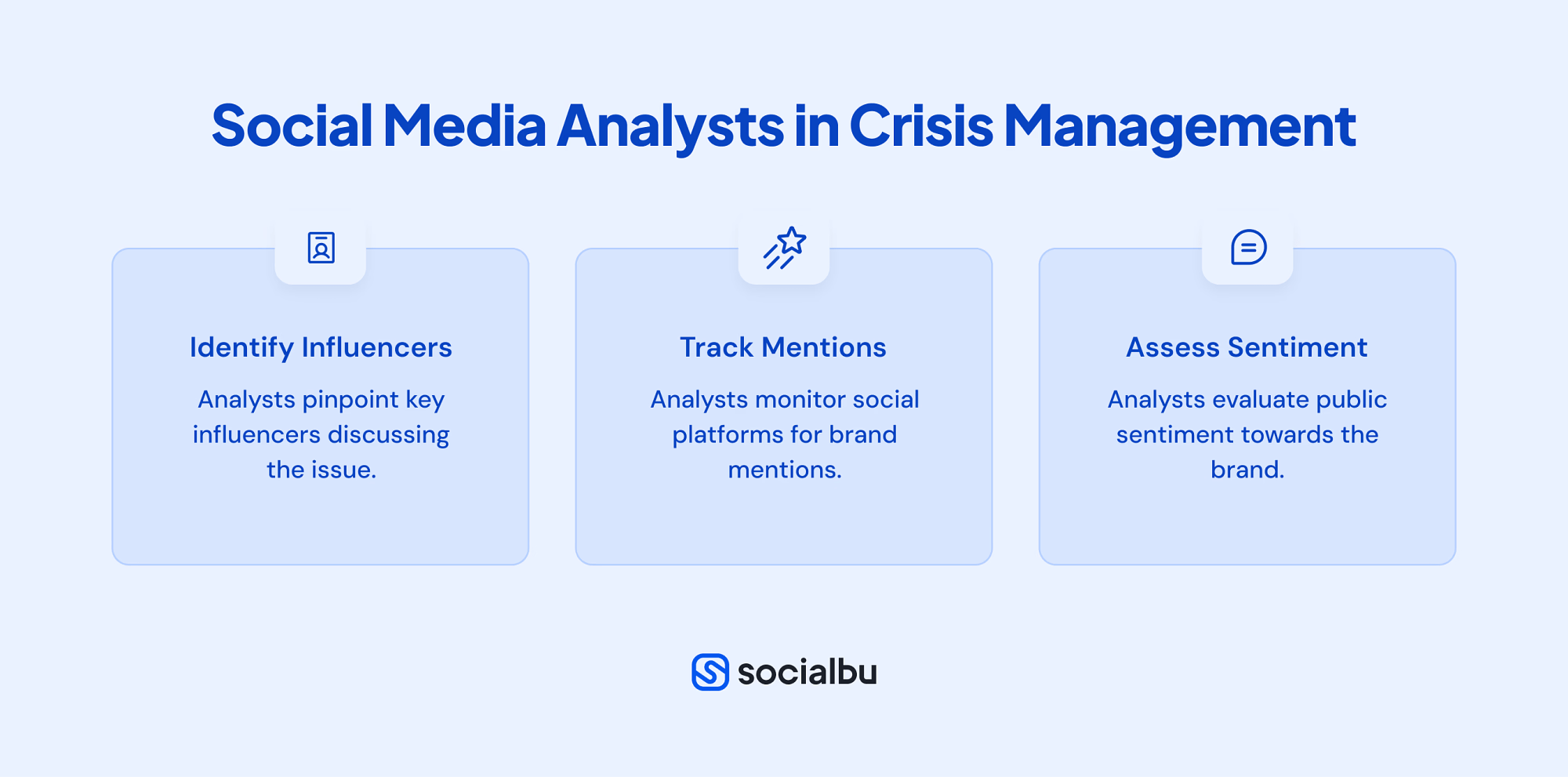
Social media analysts are useful not only for providing insights or making data-backed decisions; they also help manage crises.
In the event of low engagement on social media, social media analysts take charge by closely monitoring data. Their swift identification of issues allows brands to respond proactively and prevent damage to their reputation.
For example, if a brand faces a public backlash over a controversial ad campaign, analysts can track mentions, sentiment fluctuations, and the spread of conversations. They assess the reach and identify key influencers discussing the issue, offering actionable insights for leadership to address the crisis promptly.
7 Must-Have Skills for Social Media Analysts in 2025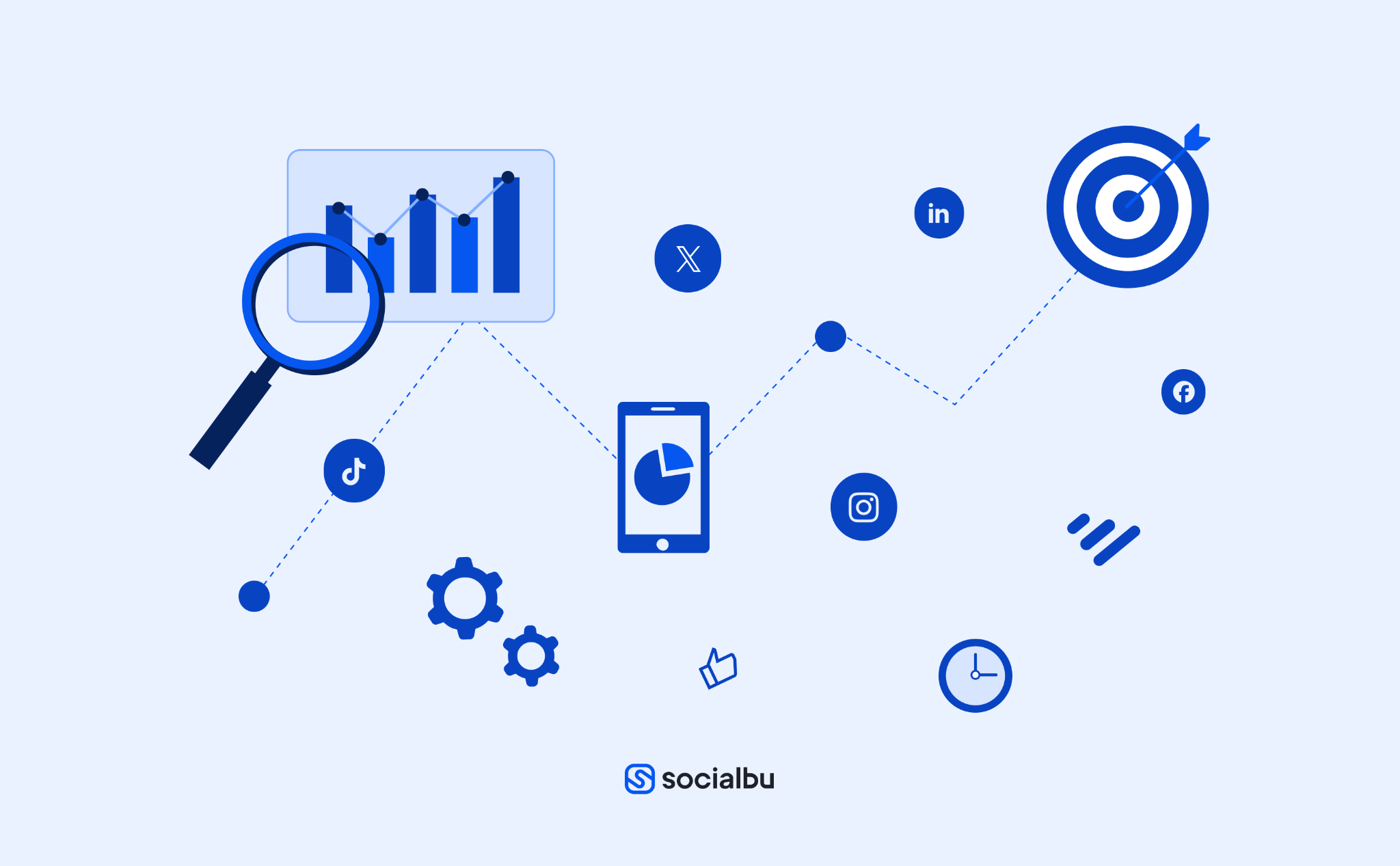
With the rise of new technologies like artificial intelligence, social media analysts’ roles are rapidly changing. Analysts are essential in decoding complex social media metrics, such as user interactions with content, to analyze and improve outcomes.
Here are seven essential skills for social media analysts in 2025 to enhance your expertise.
1. Data Interpretation Skills
Data interpretation remains the most demanding skill. However, it has evolved significantly, requiring analysts to interpret basic metrics, understand complex patterns and trends, and predict future outcomes based on advanced algorithms and machine learning.
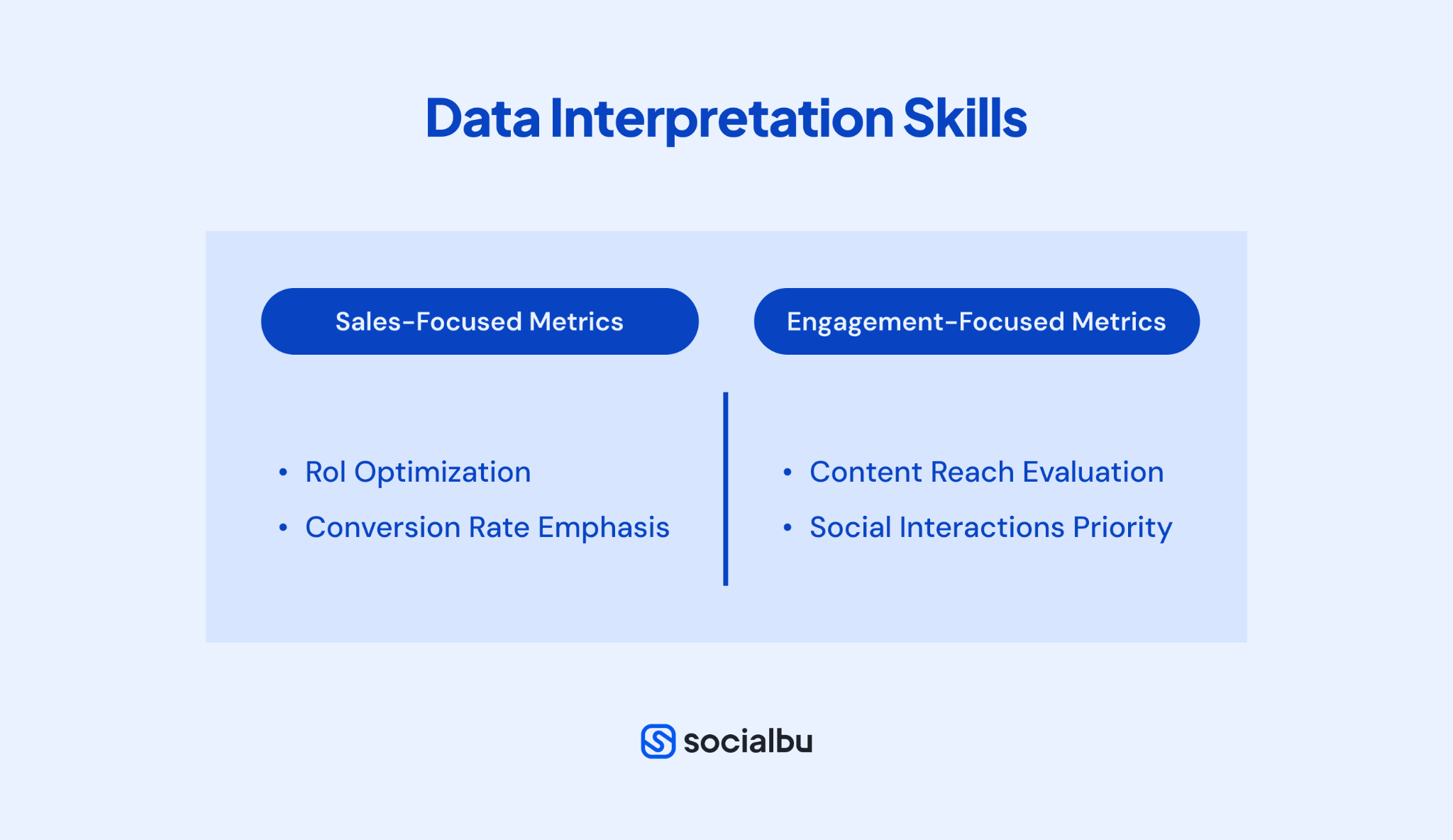
Therefore, the ability to interpret insightful data is essential for social media analysts. Raw data such as engagement rates, click-through rates, and audience demographics can be hard to make sense without any context. Interpreting data becomes key when translating raw data into actionable insights that shape decisions.
Social media analysts must be skilled to understand which metrics are most important for their brand. For example, let’s take a brand that wants to increase sales.
However, social media engagement metrics like shares, likes, and comments should be considered when building brand awareness. Such interactions help evaluate how much people like your content and how far it has traveled in the network.
2. AI and Automation Integration Skills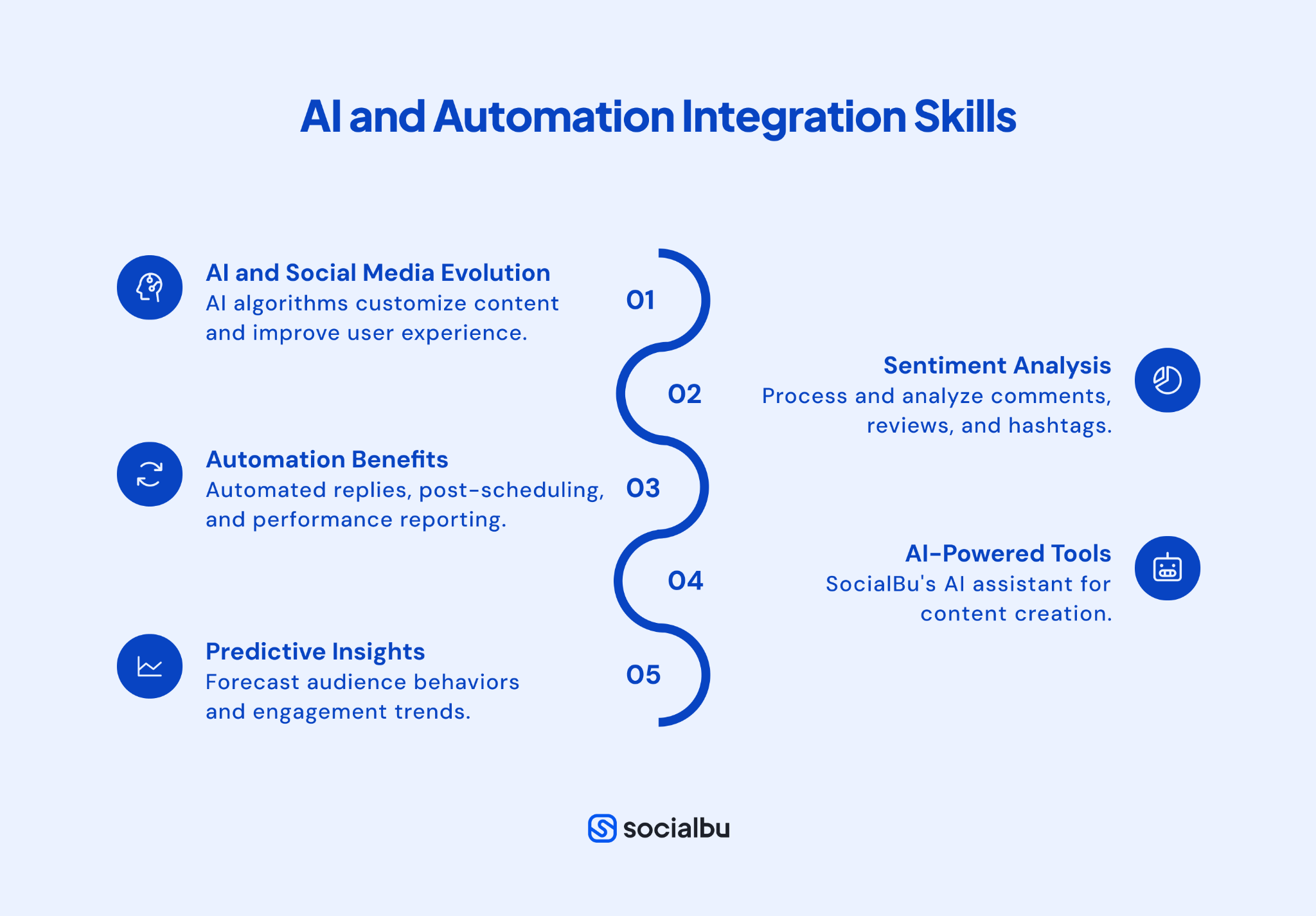
Social media is changing with the rise of artificial intelligence because it now allows networks to use AI algorithms that customize content, offer better services, and enhance social media marketing. This way, brands can reach their audience more efficiently.
AI Automation tools allow social media data analysts to manage repetitive tasks such as automated replies, post-scheduling, and performance reporting, saving valuable time.
Moreover, analysts use AI to forecast audience behaviors, engagement levels, and future social media trends by analyzing historical patterns and algorithms.
AI is also strategically now being used to process and analyze text-based content like comments, reviews, and hashtags to understand the sentiment around a brand.
Social media marketing analysts can level up their game by utilizing tools such as SocialBu. This tool provides an efficient AI assistant that predicts your next sentence, creates complete paragraphs, and customizes text for your particular style and purpose. This helps streamline content creation, making it faster and more relevant to the brand’s voice.
3. Expertise Using Social Media Analytics Platforms
Becoming an expert in social media metrics requires excelling at using social media monitoring and reporting tools. Metrics like likes, shares, and comments are easy to track, but understanding how they contribute to brand success requires a deeper analysis.
Social media analysts use Google Analytics to analyze how campaigns affect traffic and user engagement. 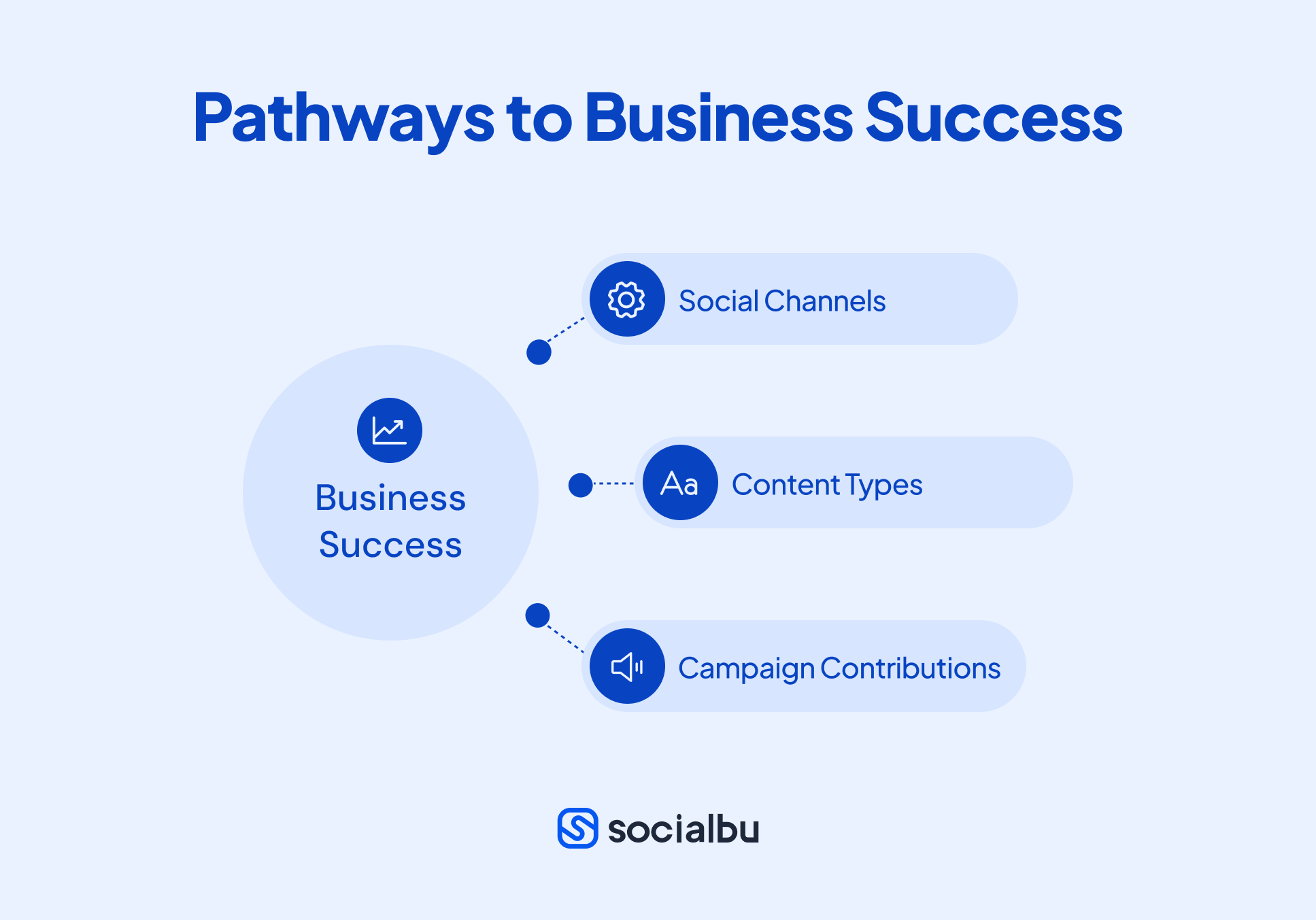
Through integration with Google Analytics, brands can discover what social channels are driving the most traffic, what type of content grabs attention, and how various campaigns contribute to the business success.
In addition, tools such as SocialBu enable analysts to track analytics across multiple platforms, offering insights into engagement rates, audience demographics, and content performance. This allows social media analysts to monitor real-time results and fine-tune campaigns for maximum impact.
With AI and automation taking, you will have more time to identify trends that are developing, refine audience targeting, and optimize content strategies for long-term business growth.
4. Staying Ahead of Trends 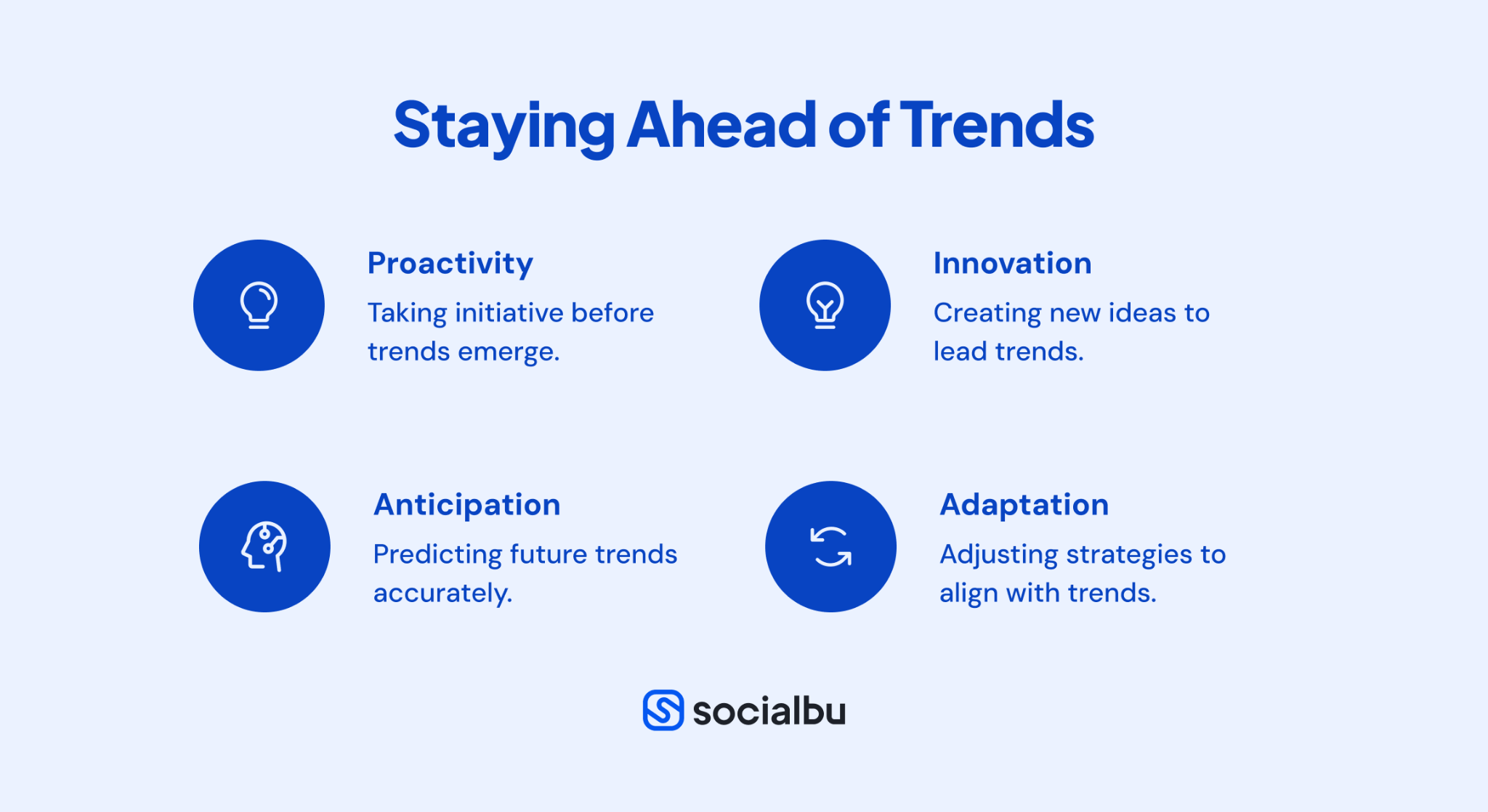
One of the most crucial skills that any social media analyst or growth analyst must master is staying ahead of the trends. With such ever-changing social platforms, social analysts must work around and change their strategies as social platforms evolve with new features, formats, and audience expectations.
Staying ahead is all about keeping up with the latest emerging technologies, staying updated on algorithmic changes, and knowing updated consumer trends to remain at the front for brands.
How to plan and stay ahead of social media trends:
- Social media analysts can track platform-specific trends like Instagram’s shift to Reels or YouTube’s focus on Shorts, thereby refining content strategies to match each platform. These trends can help the analysts navigate audience preferences and help the brands create content that resonates with them.
- Social listening is far beyond basic monitoring. It is about listening to the feelings, opinions, and conversations surrounding a brand, an industry, and its competitors in real time. Social media analysts can listen to these conversations and detect subtle changes in audience preferences and emerging topics that matter to the audience.
- Additionally, social media analysts can take advantage of influencer marketing trends to understand how these collaborations change audience perceptions and behaviors. By knowing the strategy, you can build better brand partnerships, earn audience trust, and create content that engages.
5. Social Media Insights Gathering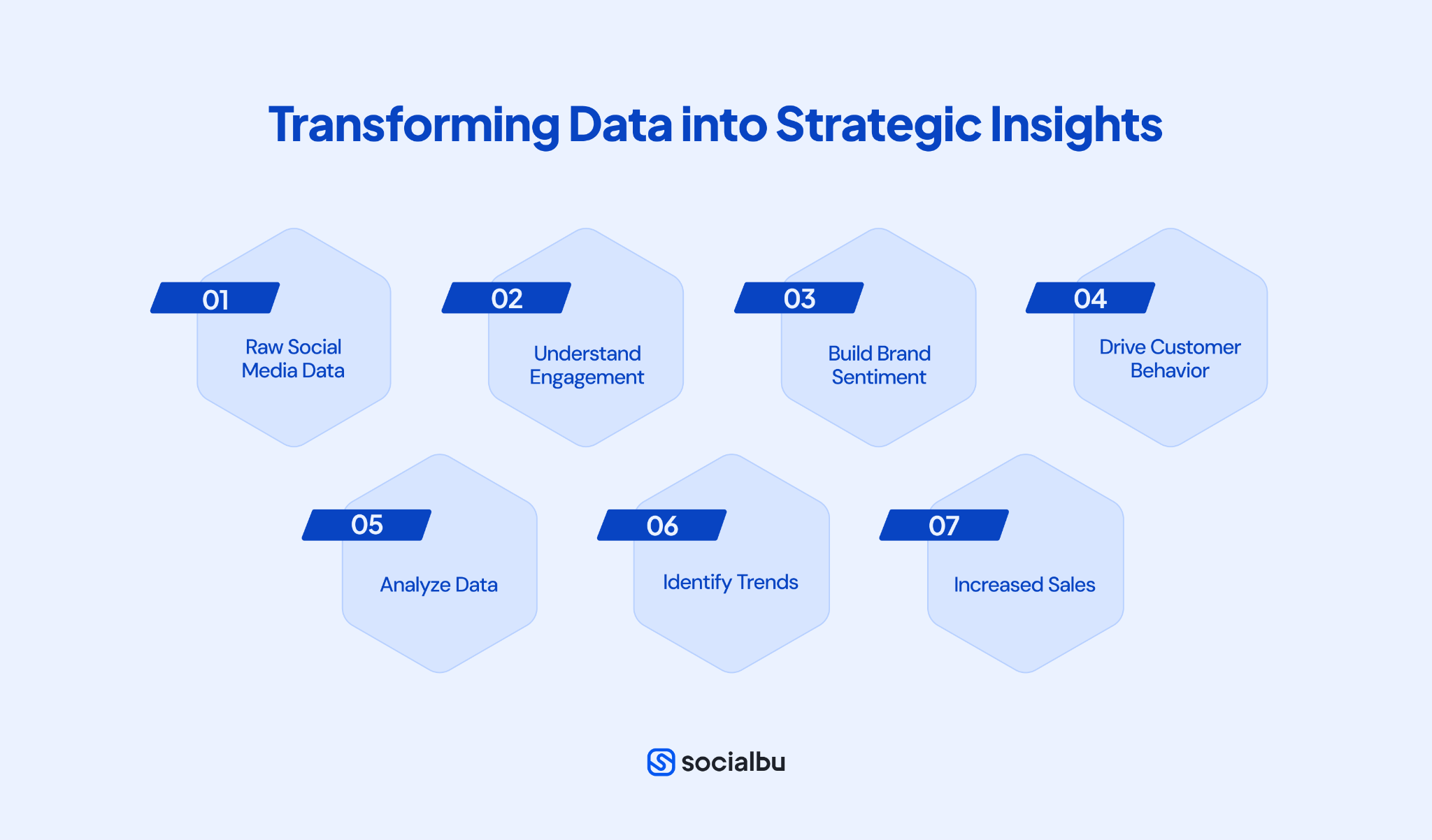
To be an effective social media analyst, you need to be able to quickly analyze raw data to make insights that can drive strategy. Liking, commenting, and sharing are basic metrics that can only paint a snapshot of audience activity.
Analysts go beyond social media efforts to understand the impact of data trends, and how engagement can be leveraged to drive customer behavior, build brand sentiment, and drive sales.
By interpreting these patterns, they can offer brands a clearer understanding of their social media performance, helping to refine campaigns and optimize brand growth.
Tracking the customer’s journey across social media platforms helps analysts understand how users interact with content and move along the sales funnel. This is crucial for optimizing the user experience.
Engagement analysis is another crucial part of gathering social media insight.
By Going beyond likes and shares, analyzing how people engage with content—commenting, saving posts, or clicking on links helps determine what resonates most with the audience.
6. Data Storytelling Proficiency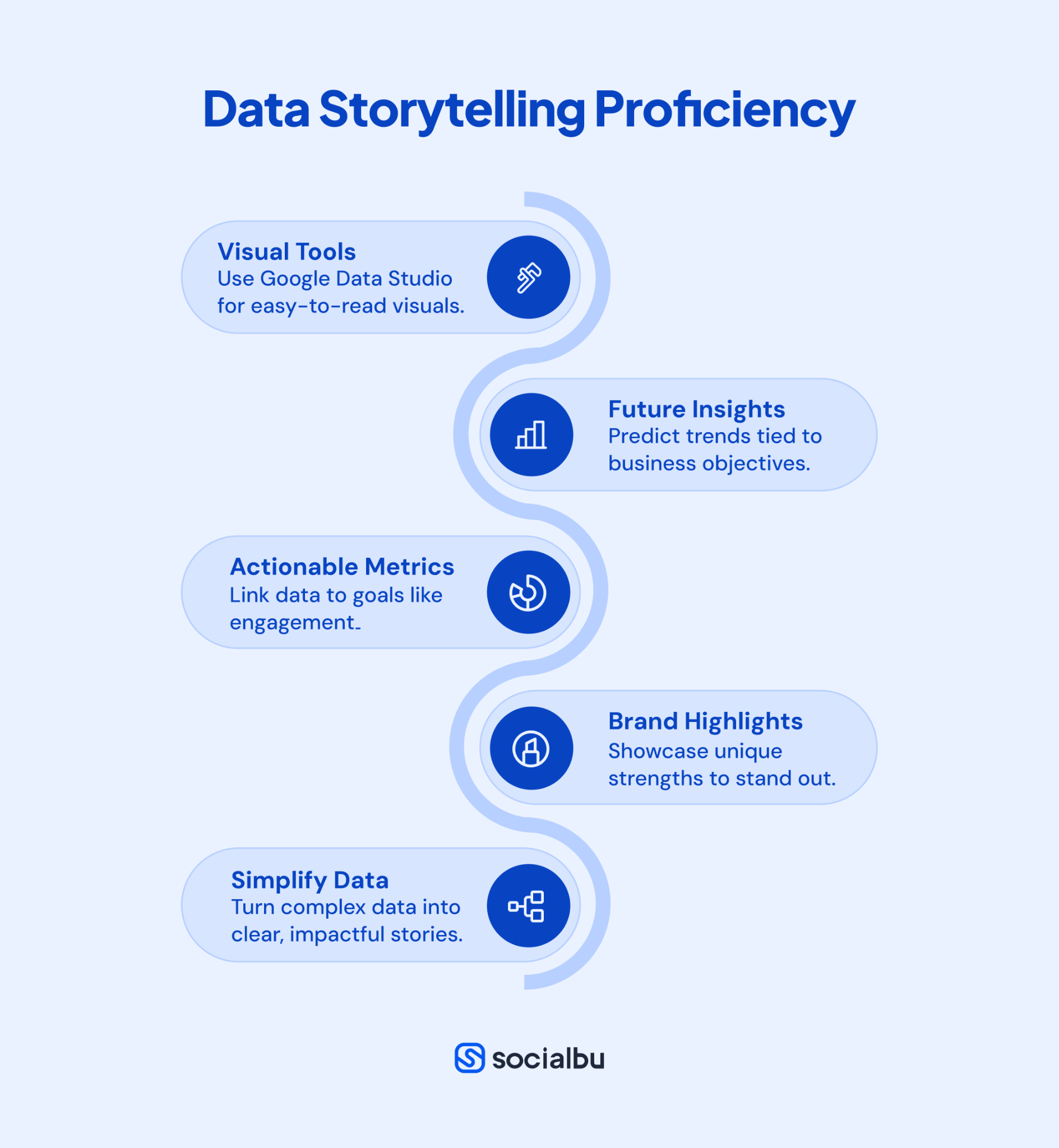
Social media analysis transforms boring, complex data into compelling narratives that tell the story behind data. Your data should deliver valuable insights for the brand and be clear enough for growth analysts to develop actionable strategies.
This involves presenting metrics and trends to show their impact on business goals like customer acquisition or conversion rates.
How to improve data storytelling:
- Tools like Tableau, Google Data Studio, or other Agency Analytics alternatives help analysts create beautiful charts, graphs, and dashboards. Data visualization makes it easier for stakeholders to grasp trends, particularly in more complex datasets.
- Effective data storytelling reveals what the data shows about the future. If analysts can tie metrics to business goals, their insights will move to concrete actions.
- Positioning the brand means highlighting unique strengths, showcasing key advantages, and differentiating it from competitors.
7. Platform Change Awareness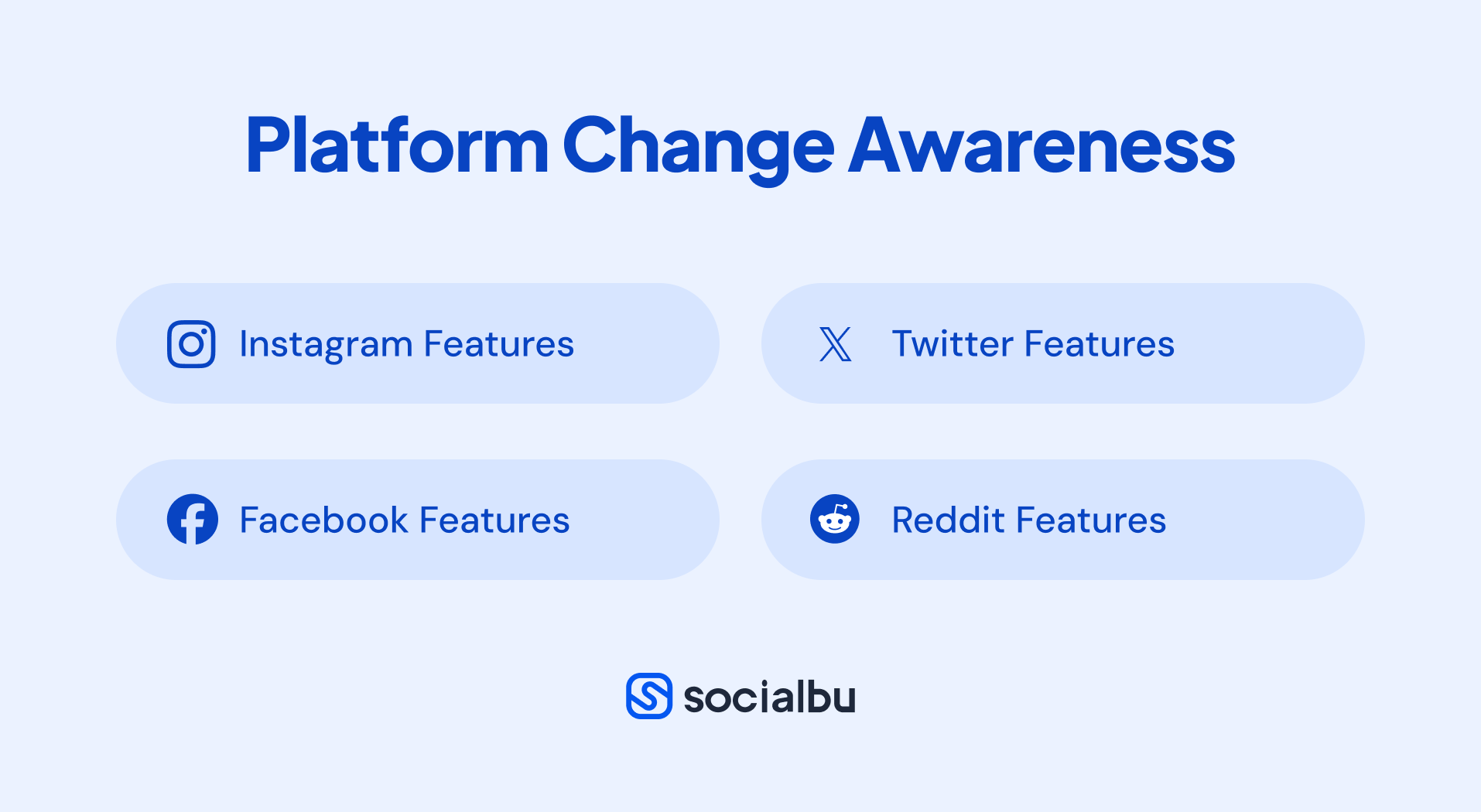
Social media platforms constantly evolve with new features, algorithm changes, and updates that significantly impact engagement and audience behavior. To be effective, strategies have to change with these, and analysts must know about these changes
Also, Facebook prioritizes Reels, Instagram frequently updates its algorithms, and X (formerly Twitter) has undergone major changes under Elon Musk.
With constant changes, analysts must stay informed about platform-specific trends and adjust their strategies to keep content aligned with what’s currently working.
For example, Instagram’s introduction of Reels shifted a marketing analyst’s focus to short-form videos that quickly engage viewers. Analysts assessed Reels’ alignment with campaign goals, optimized content, and monitored performance to adjust strategies in real time.
Wrap Up!
With social media’s evolution, the role of social media analysts is becoming more crucial than ever. Analysts do not simply follow trends; they create them by mastering skills such as AI integration, data storytelling, and platform change awareness.
Social media analysts can analyze data, predict trends, and identify engagement patterns. This may make or break the success of your brand in the digital world
For brands, social media analysts are key to staying relevant. They stay informed of audience behavior, change strategies on the fly, and ensure that the content they produce really resonates with the audience’s current preferences. Their expertise enables businesses to engage effectively and build lasting connections.
Ready to optimize your social media strategy? Try SocialBu free. SocialBu’s advanced analytics help you convert audience insights into meaningful results and drive data-driven decisions that help your brand make an impact.
FAQs
What Is the Future of Social Media Analytics?
Social media analytics will shortly be driven by AI and machine learning, predictive insights, real-time monitoring, and advanced sentiment analysis. Analyzing platform attributes will become specific, allowing brands to predict trends and enhance engagement strategies.
What Are Analytical Skills in Social Media?
Social media analytics involves interpreting metrics, understanding algorithms, spotting trends, and using audience behavior to improve content and campaigns.
How to Become a Social Media Analyst
To become a social media analyst, start by learning how to use social media analytics tools and understand key performance indicators (KPIs). Gain experience by analyzing data for campaigns and continuously stay updated with industry trends
What Does a Social Media Marketing Analyst Do?
A social media marketing analyst evaluates campaign performance by analyzing metrics, gauging interest, and offering strategies for improvement.


